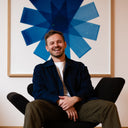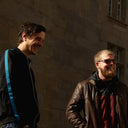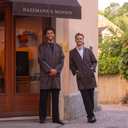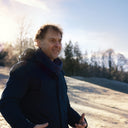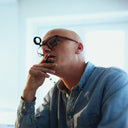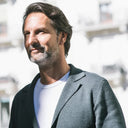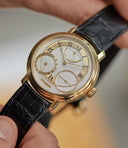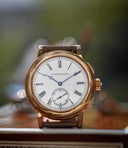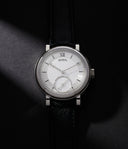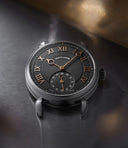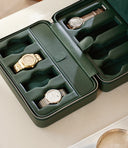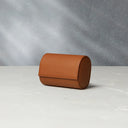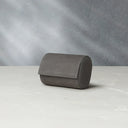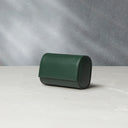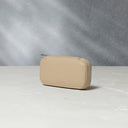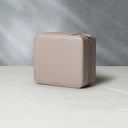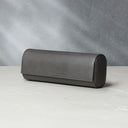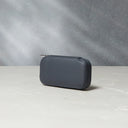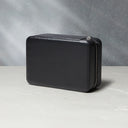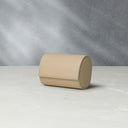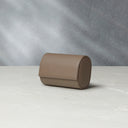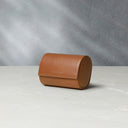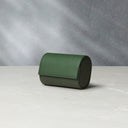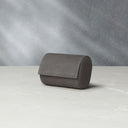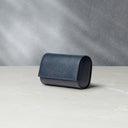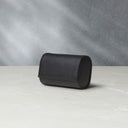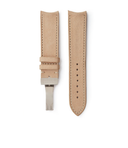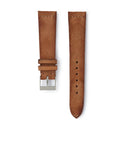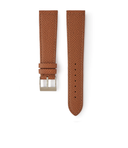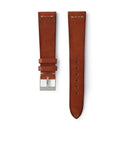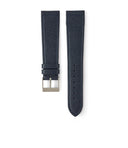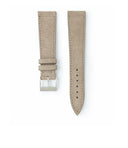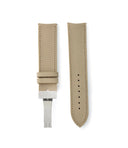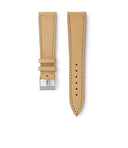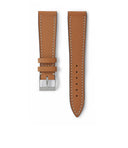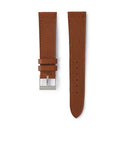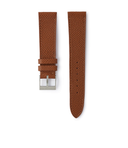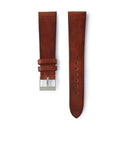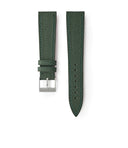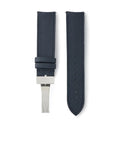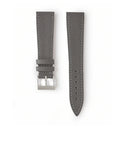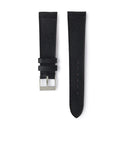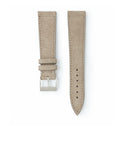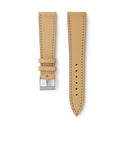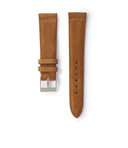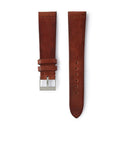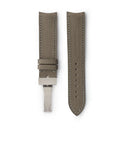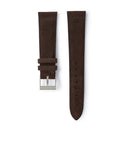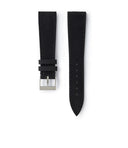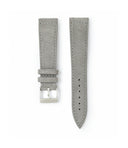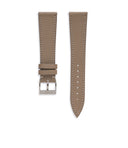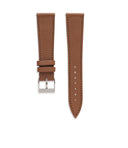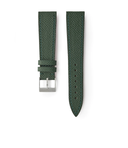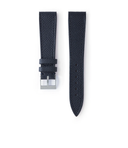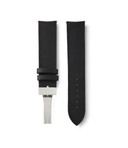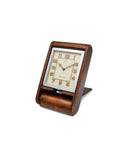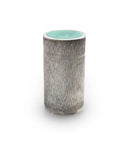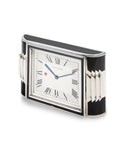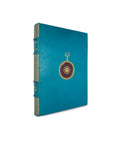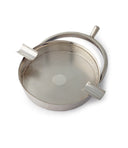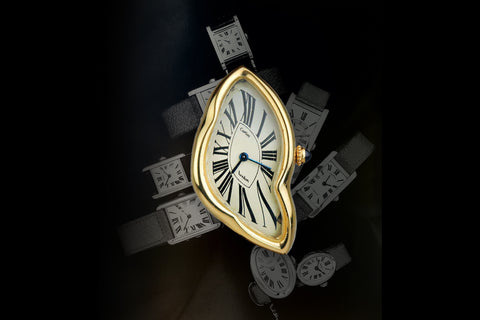
The Importance of London Watchmaking
By Russell Sheldrake
We may be slightly biased, but we believe that London is one of the most important locations in watchmaking history. Home to Greenwich Mean Time and its Prime Meridian, it is the site of workshops owned by Thomas Tompion, George Graham and Thomas Mudge – and it is the city in which Rolex was founded. There are many layers to London’s horological past and we wanted to give an overview of its many highlights, important personalities, and significant advances.
We’ve taken the liberty of breaking this city’s history in timekeeping into four sections in an effort to simplify a near 500-year-old story. We look at the time before the lever escapement and the period before industrialisation, then move on to industrialised London and finally the modern day. All three represent distinct eras in watchmaking, and while the products of each are remarkably different, a striking continuation can be seen throughout.
Pre-Lever Escapement
We can go back to the time of King Henry VIII where records show the king wanting to import talent from the continent in all forms, but especially in clock and watchmaking. Many of these craftsmen were forced out of their own country due to religious persecution, with the most significant of these being the Huguenots. This desire to import craftspeople came from a lack of watchmaking tradition in the country at the time. There are records of tower clocks being produced domestically as far back as the 1300s, but the trade hadn’t significantly progressed by the 1500s in comparison to what was being produced on the other side of the Channel.

Two creations by Nicholas Vallin, a Huguenot who operated in London towards the end of the 1500s, courtesy of The British Museum and The Metropolitan Museum of Art.
According to the Clockmakers’ Museum in London, some of those who came over and settled in the capital include Francis and Michael Nouwen and Nicholas Vallin, mainly around Blackfriars and Clerkenwell, where the clockmaking industry went on to develop. The trade took serious hits at the end of this period from outbreaks of the plague, the Great Fire of London and the Civil War.
Despite this influx of foreign tradesmen, native talent was starting to come to the fore. Bartholomew Newsam became the clockmaker for Queen Elizabeth I in the early 1580s and King James I called upon his countryman, David Ramsey, to fill the same post. Ramsey went on to become the first Master of the Worshipful Company of Clockmakers. It was the founding of this guild that started the process of professionalising this craft in England and, despite the protest of other guilds such as the blacksmiths, who lost many members to this new organisation, it managed to create a foothold in the city. Its aim was to regulate and promote all of the trades associated with clockmaking, including engraving, case making, sundial making, and parts production. Founded on 22nd August 1631, it plays a big role in the history of watchmaking in London.

A portrait completed in 1680 that is believed to be of Robert Hooke, it is thought that its identity was repressed by Isaac Newton, who saw Hooke as a competitor and actively tried to erase his name from the records of the Royal Society after Hooke’s death.
Many of those who worked in clockmaking at the time were not just watchmakers; they worked across many different fields. A notable example of these polymaths was Robert Hooke, 1635-1703, a significant figure in the fields of physics, geology and architecture, and holder the title of Curator of Experiments at the Royal Society. Hooke was the inventor of the anchor escapement, which was later developed to become the deadbeat escapement. However, more controversially, he claimed to be the first person to invent the balance spring.
As has been the case with many advancements in horology, it appears that multiple people were working towards the same ends independently of each other. This period is covered in great detail by Cecil Clutton and George Daniels in the book Watches: A Complete History of the Technical and Decorative Development of the Watch, but we will try and give a brief overview here.
Hooke’s claim centres around a set of lectures he gave to the Royal Society in the late 1660s concerning the usefulness of a balance spring. However, he abandoned these experiments halfway, as he was often known to do, in favour of other work. It wasn’t until the Dutch scientist Christiaan Huygens proclaimed in 1675 to have implemented a balance spring into a watch that Hooke suddenly took interest again.

An illustration of Hooke’s used in his lectures to the Royal Society, demonstrating his theories around the use of springs.
With the help of Thomas Tompion, a watchmaker who had only just moved to London and would go on to become a leader of the industry, Hooke was able to produce a watch with a working balance spring and present it to the king in order to get a patent. This fierce rivalry between Hooke and Huygens clearly helped push the scientific understanding of the day and without it who knows when the regulating organ of a balance spring would have been invented.
Tompion, born into a family of blacksmiths in Bedfordshire in 1639, was a leading light of London watchmaking. Not only was he trusted by Hooke to make his theories a reality, but through Hooke he would be thrust into the upper echelons of English society, receiving orders from monarchs and their court. His work would be used at the Royal Observatory in Greenwich, the Royal Society, and the Tower of London and while he was clearly an extremely talented watchmaker, what is all the more impressive is his business acumen – at one point he ran a workshop of up to 20 people. He established this workshop on Fleet Street at the Dial and Three Crowns. Many of his pieces sit in museums today as the very greatest examples of English horology of the time.
Tompion was also part of a group of watchmakers who invented the cylinder escapement in 1695, which went on to be produced in millions of pocket watches in both England and Switzerland. Later in his career, Tompion went into partnership with George Graham, who not only married one of his nieces, but built on Tompion’s legacy by inheriting his business on his death and refining the deadbeat escapement that Tompion worked on throughout his career.
Graham very much followed in Tompion’s footsteps, becoming Master of the Worshipful Company of Clockmakers, just like Tompion, and quickly became the go-to watchmaker for London’s aristocratic class. So tied are their legacies that they are buried under the same stone in Westminster Abbey.
It is reported that due to Graham being a Quaker he had a deep distrust of banks and so kept all of his money in a strong box. He lent this money out, interest free, to his friends. One of those friends he reportedly lent money to was none other than John Harrison, who he had grown close to since Harrison had moved to London. We will cover Harrison and his work in more detail further down.

George Graham followed closely in his old master’s footsteps in becoming the favoured watchmaker for royal courts around the globe, courtesy of Encyclopaedia Britannica.
Another luminary of English watchmaking history that Graham had a direct influence on was Thomas Mudge, the man whose invention we are using to help structure this article. Graham employed Mudge as his apprentice in 1730 when he was just 15 and would stay under his employment for eight years. Again, we will cover Mudge’s work in closer detail in the following section.
Before we move on however, it is important to cover a final few names and their advancements in this period. The Debaufre brothers, Peter and Jacob, along with Nicholas Facio de Duillier, are known primarily for inventing jewelling in watches – something found in all watches today. Aiding the frictionless rotation of pivots, this was a serious leap forward and once it was proven to work it was quickly and widely adopted.

A repeating watch made by Daniel Quare and Stephen Horseman in 1730, courtesy of Sothebys.
There was also Daniel Quare who, in 1680, produced the first repeating watch movement. Able to chime both the hours and the quarters with one action, today it is considered one of the trickiest complications to build, so it is clear to see what an achievement it was for Quare in the late 1600s.
Pre-Industrialisation
The watchmaker that perhaps begins this period of English watchmaking is Thomas Mudge. While we needed to mention him in the previous section, it is his invention of the lever escapement that we are using to help structure this article. In 1750, Mudge established his own shop a few doors down from his old Master George Graham’s on Fleet Street where, five years later, he invented the lever escapement. Of course, the lever escapement can now be found in nearly all commercially produced watches and any deviation from this is often marked with some significance. While the version of the escapement that we use today is not exactly as Mudge imagined it, due to it being developed by other watchmakers after him – including Abraham-Louis Breguet – the principles are very much the same.

A pocket watch regulated by a lever escapement that was acquired by King George III as a gift for his wife Queen Charlotte in 1770, courtesy of The Royal Collection Trust.
Another advancement that arguably proved just as significant as the lever escapement and happened around the same period: John Harrison’s nautical timekeeper H4. Completed in 1759 and the culmination of a near lifetime of work and a tiresome battle with the Board of Longitude, the ability to keep accurate time while at sea was a significant breakthrough and one that had taken most of the 1700s to crack.
It is believed that Harrison’s inspiration came from a pocket watch made for him by John Jeffreys – a pocket watch that performed so well that it convinced Harrison that he would need to change course if he was to solve the Longitude issue. Rather than the three substantial clocks that he had already produced, which had failed to meet the requirements of the Board of Longitude, he decided to try a pocket-style watch. This would prove to be the key to success and would eventually win him the prize money that had first been offered 45 years before.
Once Harrison had proved that telling time at sea accurately was possible, many other watchmakers of the time attempted to refine and simplify his solution. Pierre Le Roy and Ferdinand Berthoud on the Continent and Mudge, Larcum Kendall, and John Arnold in London all tried to produce a better, cheaper and less complex timekeeper that can work at sea.
Kendall was tasked to replicate H4 but went on to do much more. His first attempt, known as K1, proved as successful, but just as costly as H4. He then set about simplifying the mechanism so that it could not only be mass produced, but it would be affordable for more ships. He went on to produce K2 and K3, roughly halving the cost of production each time.
Mudge’s attempts at marine chronometry began after he closed his commercial business and proved so successful that the accuracy of his efforts surpassed all others that were tested at Greenwich for decades to come.
John Arnold became one of the most successful watchmakers London had ever seen. Often considered as one of the fathers of modern horology, Arnold knew the key to more accurate timekeeping lay in the proper regulation of the balance and true temperature compensation. The inventor of the overcoil balance spring, Arnold’s work perhaps went the longest way to democratising accurate timekeeping. He was in frequent correspondence with Breguet, and Arnold even sent his son to apprentice under him, showing just how highly Arnold thought of the Parisian’s work.

A watch that was worked on by both Arnold and Breguet. This watch was originally produced by Arnold in 1774 but was later adapted by Breguet in 1808 to contain a peto cross detent escapent and his newly invented tourbillon. A sign of the close relationship the two enjoyed, Breguet gifted the watch to Arnold’s son, courtesy of The British Museum.
Arnold’s timepieces were so accurate that from 1840 (41 years after his death) to 1940, a pocket watch he made would be used by John Henry Belville and his family to sell the time around London after it had been set every day at Greenwich. A small family business that lasted a century, as having an accurate timekeeper in one’s house was still not affordable for everyone. The fact that one of Arnold’s watches was used to sell the time to the people of London up to 140 years after the watchmaker’s death proves just how reliable his work was.
Two central figures to the Worshipful Company of Clockmakers throughout this period were father and son, Benjamin Vulliamy and Bejamin Lewis Vulliamy. While their horological works did not reach the fame of Arnold, Harrison or Mudge’s, they established what is now the oldest collection of historical timepieces in the world that is currently held in the Clockmakers’ Museum. The belief that it would be important to document, catalogue, and share the advancements the company had made in horology was a new one at the time. While the collection has been moved multiple times and added to over the years, today it still acts as an educational tool for anyone looking to understand how watch and clockmaking, as a profession, began.
The final watchmaker that deserves mention here straddles this period and the one that followed. Edward Dent was a noted maker of marine chronometers and later went into partnership with John Roger Arnold, John Arnold’s son. Prior to this, Dent was already producing chronometers and submitting them for trials at Greenwich where he was so impressive, they offered him work in fixing and maintaining their timekeepers.

The mechanism that drives the clock atop Elizabeth Tower, made by Dent and designed by Edmund Beckett, courtesy of UK Parliament.
After 10 years of partnership with Arnold, he established his own company, E. J. Dent, and proved successful in the production of chronometers and larger clocks. He was commissioned to produce the clock that would sit in Elizabeth Tower (often called Big Ben, but the tower was originally just called the Clock Tower) but he died before the work could be completed. His stepson, Frederick Rippon Dent, later completed the work.
When John Roger Arnold died, his company was bought by Charles Frodsham. A watchmaker who was steadily making a name for himself in the production of marine chronometers at the time, Frodsham went on to be widely acclaimed for his physical works and writings. Frodsham was the first person to write a history of the marine chronometer in English which was published in 1871, the year of his death. Charles Frodsham & Co, as it would come to be known, continued to produce chronometers and watches and today they create a very limited number of wristwatches containing a double impulse escapement thanks to the work of their team led by Richard Stenning.
Industrial Britain
This is often where many believe English watchmaking began to decline. While the quality was still high, there was an unwillingness to adopt new production techniques into the trade. The belief was that maintaining the traditional techniques would also produce higher quality timepieces and therefore ensure demand was kept high. Unfortunately, this was not the case and the rise of Swiss and American manufacturing would soon eclipse what was possible in the UK.
One man who saw this change coming and embraced it was John Bennett. While not a watchmaker – he was a lawyer by trade – he established a shop and importation business on Cheapside in 1846 where he actively promoted the industrial production of watches made abroad.

An advert from John Bennett’s store on Cheapside from 1898.
Bennett’s business was later acquired by J.W. Benson in 1889. Founded by brothers Samuel Suckley Benson and James William Benson in 1847, and originally called S.S. & J.W. Benson, James would take full ownership of the company in 1855, removing his brother’s initials from the company name. The J.W. Benson company went on to become the official supplier of timepieces to the Admiralty and War Department, gaining royal warrants from Queen Victoria, the Prince of Wales and the Tsar of Russia. They manufactured their watches in multiple factories around the city until their final factory was bombed during the Second World War, which ceased their own production and forced the company to import movements from English and Swiss manufactures.
One of the English companies that Benson bought movements from was S Smith & Son, one of the largest producers of watches, speedometers, and other motoring accessories in the country at the time. They had factories in London until the Second World War, when they moved their operations out to Cheltenham, Gloucestershire. Smiths, as they were later known, acquired a number of other companies and became one of the few success stories of industrial watch production in England, even if they could not keep pace with the Swiss industry.

The J.W. Benson store in 1952 at 25 Old Bond Street where you can now find Tiffany & Co’s London flagship store, courtesy of Getty.
While this company may not have spent long in London it would be remiss of us not to mention them. Rolex, the largest and most recognisable watch company in the world today, was founded in London, originally as a distributor of watches. It is believed that Hans Wilsdorf came up with the name while sitting on a London bus. In 1905, London was the best place to be – a global hub with possibly the best international connections in the world. While none of the watches would be made in London, the business remained based there until 1919.
Another global brand that has part of its roots located in London is Cartier. When the three brothers, Pierre, Jacques and Louis established the three homes of Cartier - Paris, New York and London - at the beginning of the 20th century, their family business was already serving the very top of society. While each of them made their mark on the company and city they settled in, it was Jacques and his son, Jean-Jacques who would transform the fashion of London’s aristocracy through their creative flair.
Jacques would accompany King George V and Queen Mary on a trip to India and the company would secure multiple royal warrants throughout their history, which they still hold today. For the first half the 20th century the London workshop would be concentrated mainly on jewellery design and production, but from the 60s onwards, wristwatches would become a major part of their offering.


Jean-Jacques Cartier and a selection of timepieces that Cartier London produced, courtesy of Francesca Cartier Brickell and Auro Montinari.
The designs that Cartier London produced during this period have become legendary today, with the most famous being the Crash, as shown by the result of one selling on Loupe This for $1.5 million. This asymmetric dress watch epitomises the free-flowing shapes that Jean-Jacques preferred and was able to produce thanks to the skilled craftsmen and women under his employ. The impact that this period of creativity had on the company cannot be understated, and as the appreciation for them grows, more and more information is being uncovered.
Today
In London today, watch production – much like all forms of industry – is all but non-existent. While the British watch industry certainly seems to be on the rise, it is unlikely that the capital will see the same heights that it once did. However, the history still lives on through multiple museums dedicated to the trade – namely the Clockmakers’ Museum and the Royal Observatory Greenwich – and the names of forgotten manufactures that can be seen on the sides of buildings around Farringdon, Clerkenwell, and Islington.
Of course, this rich history is what George Daniels was partly tapping into when he signed his watches “Daniels London” despite making them on the Isle of Man. Old and New Bond Street remain a hub for all watchmaking brands, with boutiques for nearly every major name represented there. The market for high horology is strong in London, and the reputation of that single street is a big enough draw to warrant the expense of a store.
The role of watchmaking in London today may be very different to what it used to be, but it remains a significant part of the city’s history. It has certainly left its mark, from the iconic image of Elizabeth Tower to the glittering boutiques of Bond Street. There are a lot of layers to uncover in this story; hopefully this will serve as a useful guide to start unravelling them.







